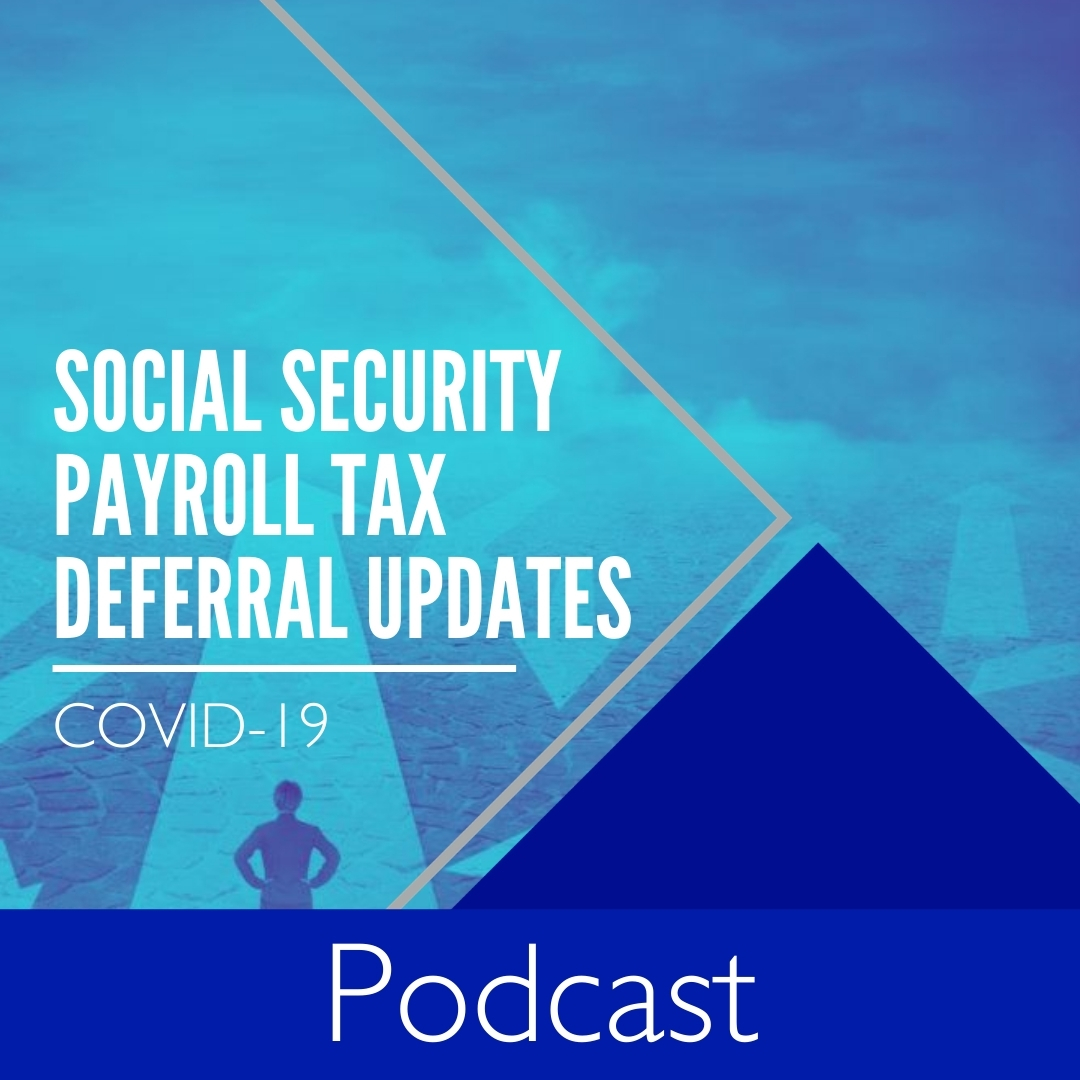On Aug. 8, 2020, the President signed four executive orders. One of those orders was to defer certain payroll taxes until the end of next year, and this is what I want to talk about today, but first let’s look at some background.
So back in spring Congress passed and the President signed three new tax laws that brought us things like mandatory sick pay and Payroll Protection Program (PPP) loans, which were intended to provide relief and stimulate the economy. Well, bill number four was actually expected this summer, but there has been delays for a number of reasons.
So far I think the House has passed a $3 trillion dollar bill and the Senate has passed maybe a $1 trillion dollar bill, and so far they haven’t been able to come to agreement. So I think the president was frustrated by this, so what he did is he actually issued the three executive orders that we talked about. These executive orders address things like enhanced unemployment benefits, eviction moratoriums and student loan relief. But one also allowed for the deferral of payroll taxes.
So let’s start there. This is a deferral, and it’s not an elimination, correct?
That is correct. So it allows certain payroll taxes from Sept. 1 through Dec. 31, 2020, to be deferred, and it’s intended to provide some additional cash for employees during this period right now when they may need it the most.
Why not just eliminate this altogether?
The simple answer is the president just doesn’t have that authority. He can defer taxes, but he can’t eliminate them.
Ok, so which payroll taxes are we talking about can be deferred?
If we look at a payroll check from a “normal” employee, there’s things like federal and state taxes that are taken off, there’s Social Security and Medicare taxes that are taken off … well, this deferral only applies to the employee’s share of the Social Security tax (it ends up being about 6.2 percent).
It also, though, has an income limitation. So the deferral of those Social Security taxes apply only to employees with the equivalent of a pre-tax income of less $4,000 per paycheck if you’re an individual that’s paid on a biweekly basis.
Now, it’s a cliff. So as soon as the wages for that particular biweekly period go over $4,000, the deferral is not available to that person: $3,999, yes; $4,000, no, it’s not available.
And it’s a payroll-by-payroll calculation. So if the employee has under $4,000 on one payroll, they can use the deferral. If they have over $4,000 on the next payroll, they can’t use the deferral. So, you know, it’s really confusing.
Yes, absolutely. So, when would the deferred tax need to be repaid (again, it’s not an elimination, so when do people have to pay this back)?
Just last week the Treasury and the IRS did issue some guidance on this, because prior to that we weren’t sure. And what they’re saying is that this has to be withheld and deposited between Jan. 1, 2021, and April 30, 2021. So essentially right after the year-end is when they have to start withholding those amounts that were deferred.
One note is that the only way that you can get a deferral as an employee and as the employer is not to withhold it from the payroll from the employee’s check. So if you’re an employer and you withhold the amount of tax from the employee’s check, that employer must pay that in (that’s in order to get the deferral).
So, last question, then: What’s your recommendation? What do employees’ employers do right now?
So in general I’m telling my clients to be cautious, since ultimately it’s the employer who’s going to be responsible for later collecting the tax and remitting it to the Treasury. So, what happens when an employee leaves or doesn’t have enough wages during that payback period to cover the deferral amount? The employer then has to make special arrangements with the employee to get it repaid, and that gets messy, too.
But on the other side, there’s also talk that this deferral may not be a deferral; it may ultimately be forgiven. If that’s the case, we don’t know how that’s going to be administered. Are they going to allow for all the deferral amounts to be forgiven? Are they allowing other amounts to be forgiven? We just don’t know.
So that’s what I say just be cautious, because at this point there’s still a lot of moving parts and scenarios.
Sign Up to Receive Email Updates
Be sure you’re getting the latest insights as legislative developments occur. We’re here for you with tax insights and business resources.
Sign Up Now
We Are Here for You
Contact us to talk through the challenges your business faces as you navigate through this unprecedented time. No doubt you’ll need help assessing cash flow and making smart projections, reviewing loan covenants, lining up bridge financing, talking to banks and lenders, figuring out staff loads and employee counts, handling disrupted supply chains, and so much more.
Read An Important Message from Our Firm





